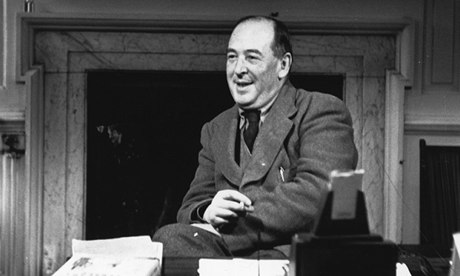Laura Miller cherishes Lewis's literary criticism, while Nicholas Murray admires Huxley's exemplary open mind. Lewis and Huxley both died 50 years ago, on 22 November 1963

'One of the world's great readers' … CS Lewis. Photograph: Hulton Getty
History may be written by the victors, but an author's reputation is made by the keepers of the flame. In the case of CS Lewis, who died on 22 November 1963, the keepers are Christians, many of them American evangelicals, and, with the exception of his children's fiction, a glance at the shelf of his books kept in print by their enthusiasm might lead you to conclude he was primarily a popular theologian. But Lewis had a day job, as a tutor and fellow in English literature at Oxford and Cambridge, and if, like me, you far more interested in his literary criticism than his apologetics, you often have to scrounge up shabby used copies of those titles online.
Almost obscured by the dominant picture of Lewis as a sort of modern-day Protestant saint is the Lewis who wrote those works, the Lewis I admire. He was one of the world's great readers. The critic William Empson once described him as "the best read man of his generation, one who read everything and remembered everything he read", which included obscure allegorical Latin poets of the late classical period, who are nowadays justifiably forgotten. Yet there's never a sense in Lewis's literary scholarship of the accumulation of expertise for its own sake. He read omnivorously and for pleasure, first and foremost. If his opinions and observations on the world sometimes reflected the narrow, old-fashioned views of his middle class Anglo-Irish background, he was always willing to extend and expand himself to meet an author halfway. His writing on the joys of reading verges, at times, on the erotic
More
Almost obscured by the dominant picture of Lewis as a sort of modern-day Protestant saint is the Lewis who wrote those works, the Lewis I admire. He was one of the world's great readers. The critic William Empson once described him as "the best read man of his generation, one who read everything and remembered everything he read", which included obscure allegorical Latin poets of the late classical period, who are nowadays justifiably forgotten. Yet there's never a sense in Lewis's literary scholarship of the accumulation of expertise for its own sake. He read omnivorously and for pleasure, first and foremost. If his opinions and observations on the world sometimes reflected the narrow, old-fashioned views of his middle class Anglo-Irish background, he was always willing to extend and expand himself to meet an author halfway. His writing on the joys of reading verges, at times, on the erotic
More
No comments:
Post a Comment